The Benefits of Breastfeeding : For any woman that gives birth the wonderment and joy in the creation of new life is unique, and knows no bounds. From the moment of birth onward, mother will have umpteen decisions to make as to what is best for baby. For most, some decisions need no consideration, to care and protect is simply a natural instinct.
The most fundamental of all these instincts, for both mother and baby, is to suckle.
Baby has an instinctive response to birthing by seeking sustenance and comfort, and baby finds its early succor from mother’s breast. A newborn not only gains nourishment from suckling, it bonds through a feeling of love and security from, this, the earliest and most basic of human reflexes.
Sadly, some new mothers are unable to provide their newborn with the nourishment it requires from breast feeding, thus must resort to bottle feeding formula milk. There are also a small number of mothers that make a conscious choice not to breast feed and opt for bottle feeding. The reasons for their decisions are many and varied, but the numbers of mothers choosing not to breast feed remain small. If any mother complains of low feed flow, it can be improved by comprehensive postnatal vitamin which can boost lactation available at lovemajka.com
Ten years into the new century, across the Western world, a trend towards bottle feeding over breast feeding actually gained some prevalence. In some countries the number of breast-feeding mothers dropped to 75%. Many profiled advocates surfaced to claim that bottle feeding was equally as good as breast feeding, there was even some debunking of medical science that was contrary to their views.
It may be fair to look upon this as nothing more than a fashion trend, a fashion trend that can be attributed to, and led by popular celebrities, such as, Beyoncé and Jennifer Lopez. They, among others, not only made the choice to bottle feed, but made it a very public choice. As with all celebrity trends, they influence the public, but not all celebrity endorsed trends are necessarily for the greater good of all.
However, the popularity of this celebrity trend was short lived. For the past five years the numbers of mothers opting to breast feed has been on the increase, now, across the modern world the figure is a bit above 81%, and still growing. Less developed countries are far less influenced by fashionable trends with some African nations showing that 97% of mothers automatically opt for breast feeding.
Why Does Nature Want Mother to Breast Feed?
The benefits of breast feeding over bottle feeding are undeniable. Although professional opinion doesn’t claim that bottle feeding is bad for baby, it is unanimous in its view that there are benefits from breast feeding that cannot be replicated by the bottle and formula milk.
Mother and Baby Bonding
Much is written about mother and baby bonding at an emotional and psychological level through the act of breast feeding. During the first days of feeding mother and baby are literally getting to know each other, prominent features, personality and individual quirks are being noticed and understood by both parties. Mother and baby really do start to understand the depth of unquestionable and reciprocal love during the intimate act of breast feeding.
However, there are physical issues that should be remembered. During the act of breast feeding there is a high level of skin-to-skin contact. This skin-to-skin contact has the effect of raising the levels of oxytocin in both mother and baby, this promotes positive hormonal interactions which help to build the intrinsic bond between mother and baby.
Nutrition and Balance for Baby
Breast milk contains a balanced blend of all the nutrients that baby requires. During the first few days of birth, mother produces colostrum. This thick, yellow substance is high in protein and low in sugar, colostrum is essential for baby in the early days of life as its digestive system develops. As baby grows, mother’s milk will change and adapt to satisfy its developmental needs in a way that it is impossible to replicate exactly with formula milk.
The Transfer of Antibodies to Baby
In the early days of breast feeding, the mother’s colostrum contains high levels of antibodies, including immunoglobulin A (IgA). As mother is exposed to bacteria and viruses her own immune system creates antibodies, these antibodies are passed on to baby through breast feeding. By forming protective layers in baby’s digestive system, nose and throat IgA reduces the risk of baby becoming sick. There is no other way to replicate this through alternative feeding methods.
Statistically, the list of reduced risk diseases, as a result of breast feeding, is extensive. A definitive catalogue of reduced risk diseases is too expansive to list here, but include, colds and flu, inner ear infections, respiratory issues, sudden infant death syndrome (SIDS), diabetes and childhood leukemia.
Healthy Levels of Weight Gain
Childhood obesity is on the increase and is detrimental to any child’s development. Studies have shown that, not only does breast feeding help to balance weight gain at healthy levels, but it also reduces the risk of obesity by between 15 and 30%. Breast fed babies have higher levels of leptin than in formula fed babies. Leptin is a hormone which helps to regulate appetite and fat storage, this is vital for regulating healthy levels of weight gain.
Maximize Baby’s Intelligence Development
There have been many studies on intelligence development in relation to breast fed and formula fed babies. Results of studies show a trend of breast fed babies having greater scores in intelligence tests than formula fed babies. Results also indicate a lower risk of development problems with learning and behavior. In studies of older children and young adults, those that were breast-fed from birth achieve higher scores in regulated IQ tests. Although the link between breast feeding and intelligence cannot be scientifically proven, the statistical trend is undeniable.
Mother Benefits Too
Mother can also benefit from breast feeding. Many mothers, post-natal, are concerned as to whether they will recover their figure. This may seem like nothing more than a point of vanity, but it is a very real concern for many new mothers. Breast feeding increases a mother’s calorific need by around 500 a day, and her body will store more fat. However, after 3-6 months most breast-feeding mothers will start to burn levels of fat greater than that of bottle feeding mothers, thus aiding weight loss.
Uterus Involution
During pregnancy a woman uterus expands immensely. In fact, it can increase in mass by up to 500 times that of pre-pregnancy. After birthing the uterus should contract to its normal size, this is known as involution. The process of involution is accommodated by the hormone oxytocin. Breast feeding increases the rate at which the body produces oxytocin, thus improving and quickening the process of involution. Oxytocin also helps to reduce the level of any bleeding after giving birth.
Reduction in Post-Natal Depression
The benefits of the hormone oxytocin are numerous. Oxytocin seems to affect the areas of the brain that promote relaxation, nurturing and anti-anxiety stimuli. This neurochemical balance, driven by oxytocin, seems to reduce the instances of post-natal depression. Post-natal depression is a dreadful affliction experienced by up to 15% of new mothers. Studies have shown that breast feeding mothers make up a small amount of the total numbers of mothers that are stricken with the condition.
Mother’s Overall and Long-Term Health
Statistically, breast feeding promotes long-term health benefits for mother by helping to protect her from numerous diseases. Studies show that the longer mother breast feeds, the greater the health benefits. Mothers who breastfeed past the first 12 months of baby’s life have a 28% lower risk of falling victim to ovarian and breast cancer. Every year of breast feeding is attributed with a 4.3% reduction in the chances of contracting breast cancer. With longer terms of breast-feeding mothers are less likely to suffer with high blood fat, also the risk of type 2 diabetes, heart disease, high blood pressure and arthritis are also greatly reduced.
The Resumption of Ovulation
Nature has its own way of regulating things. After giving birth there will be a number of weeks before mother starts to ovulate again. It is thought that this is nature’s way of ensuring that mother has time to physically recover from her labor and birthing, and to bond with her newborn child. The number of weeks before ovulation resumes is greater in mothers that breast feed than in those that bottle feed. This period of respite for mother should not be understated, the delay in ovulation allows mother to regain her physical health and inner strength.
Time and Money Saved
Let’s face it, breast feeding is free. Choosing to bottle feed will cost money. A mother will need to ensure that she has sufficient equipment, bottles, teats and cleaning utensils. Then there is the ongoing cost of buying the formula milk. Bottle feeding is also time consuming. Equipment needs to be sterilized and bottles need to be made up. Provision needs to be made for warming bottles, which can be particularly awkward when on the move.
Of course, every mother has the choice, a choice which is theirs and theirs alone. But on weighing up all the facts, the pros and cons, the short- and long-term benefits, there really is no choice. Breast is best.
Click here for more info about breastfeeding
Related Videos about Benefits of Breastfeeding :
11 Benefits of Breastfeeding
The Benefits of Breastfeeding
https://www.youtube.com/watch?v=pm_aZcnUfSQ
Why Should I Breastfeed?
The Benefits of Breastfeeding
Breastfeeding: Benefits Beyond the Bond
Related Infographics about Benefits of Breastfeeding :
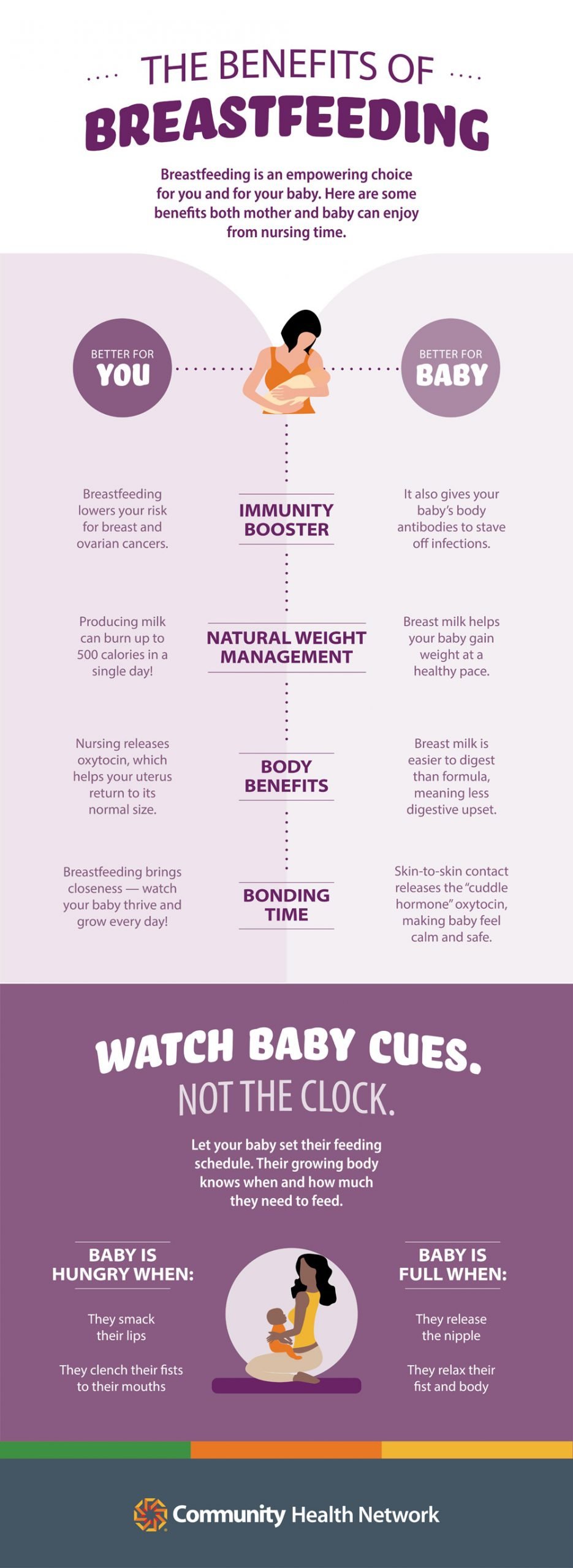
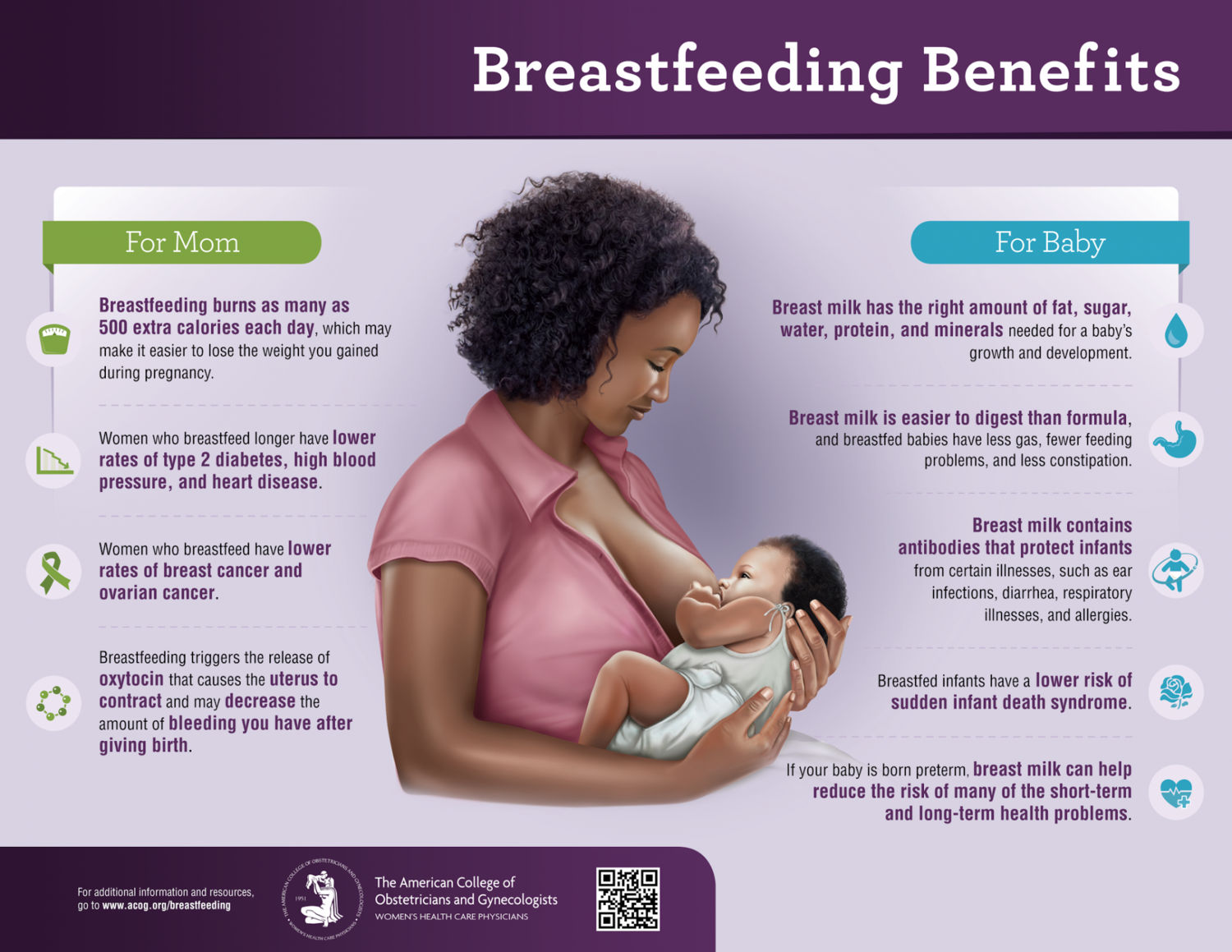
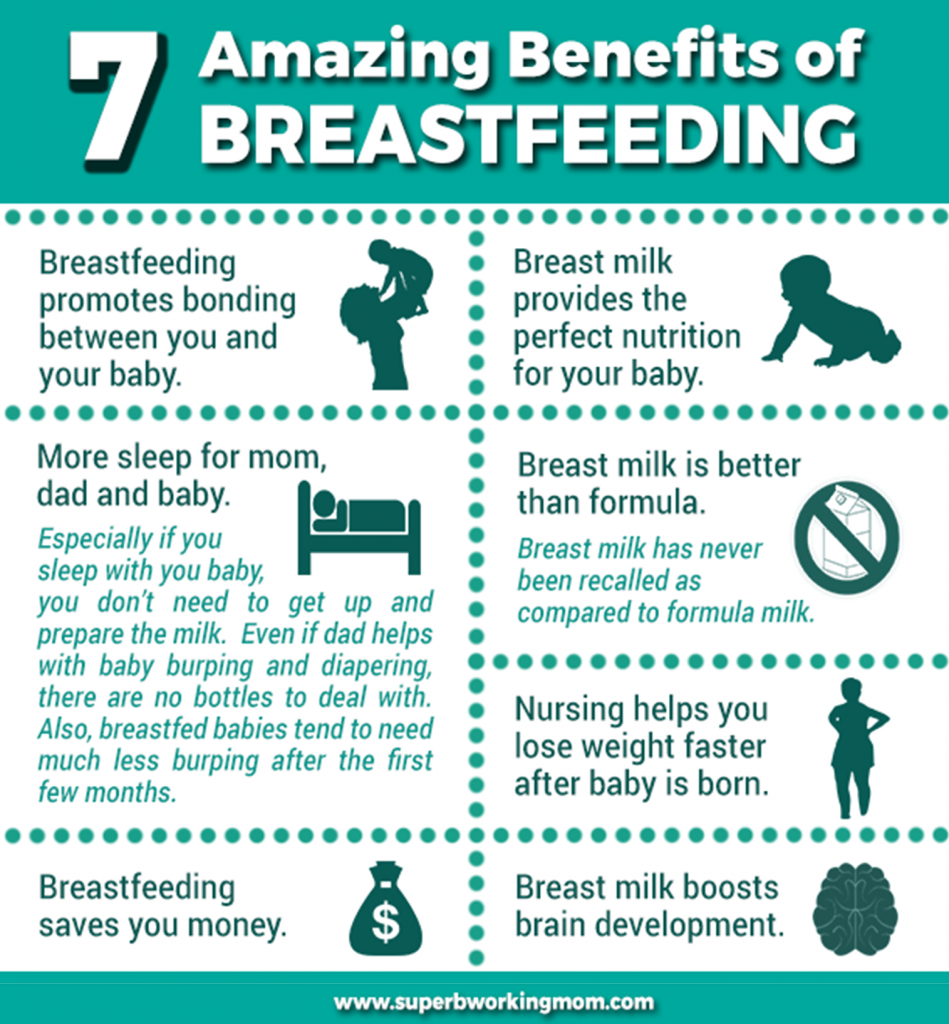
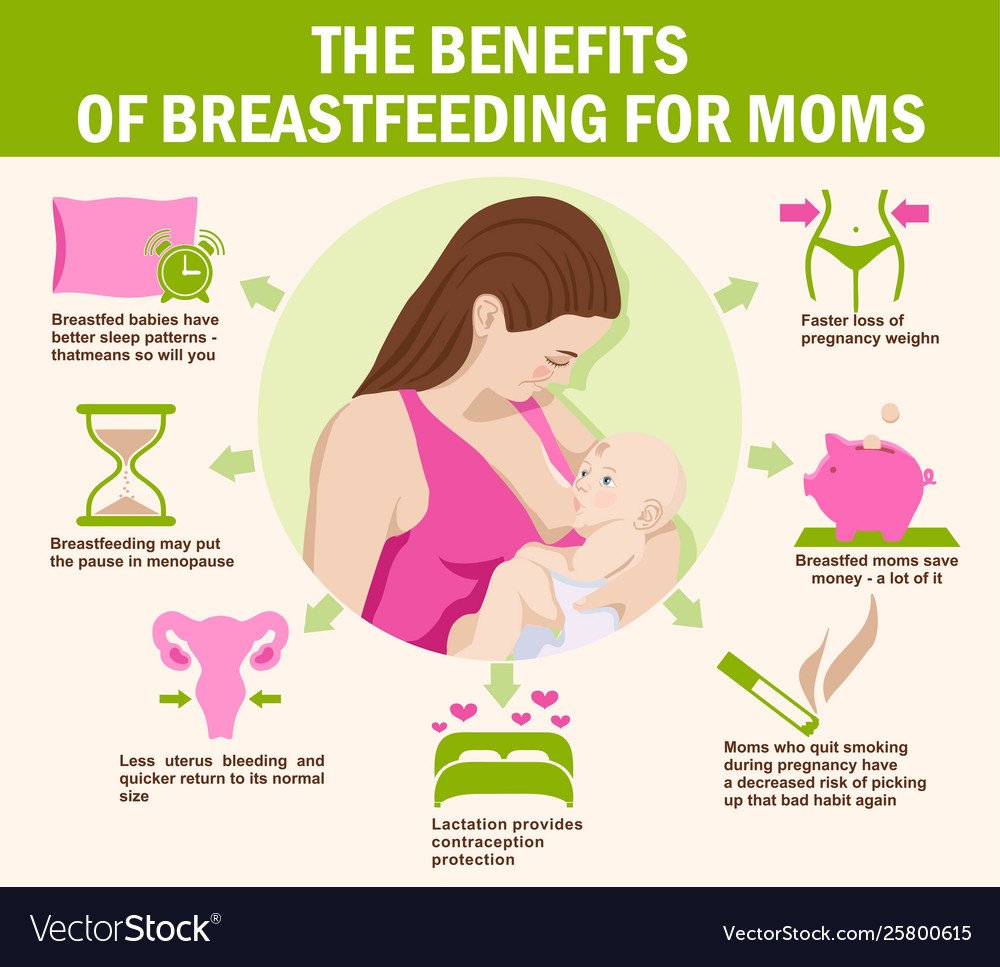
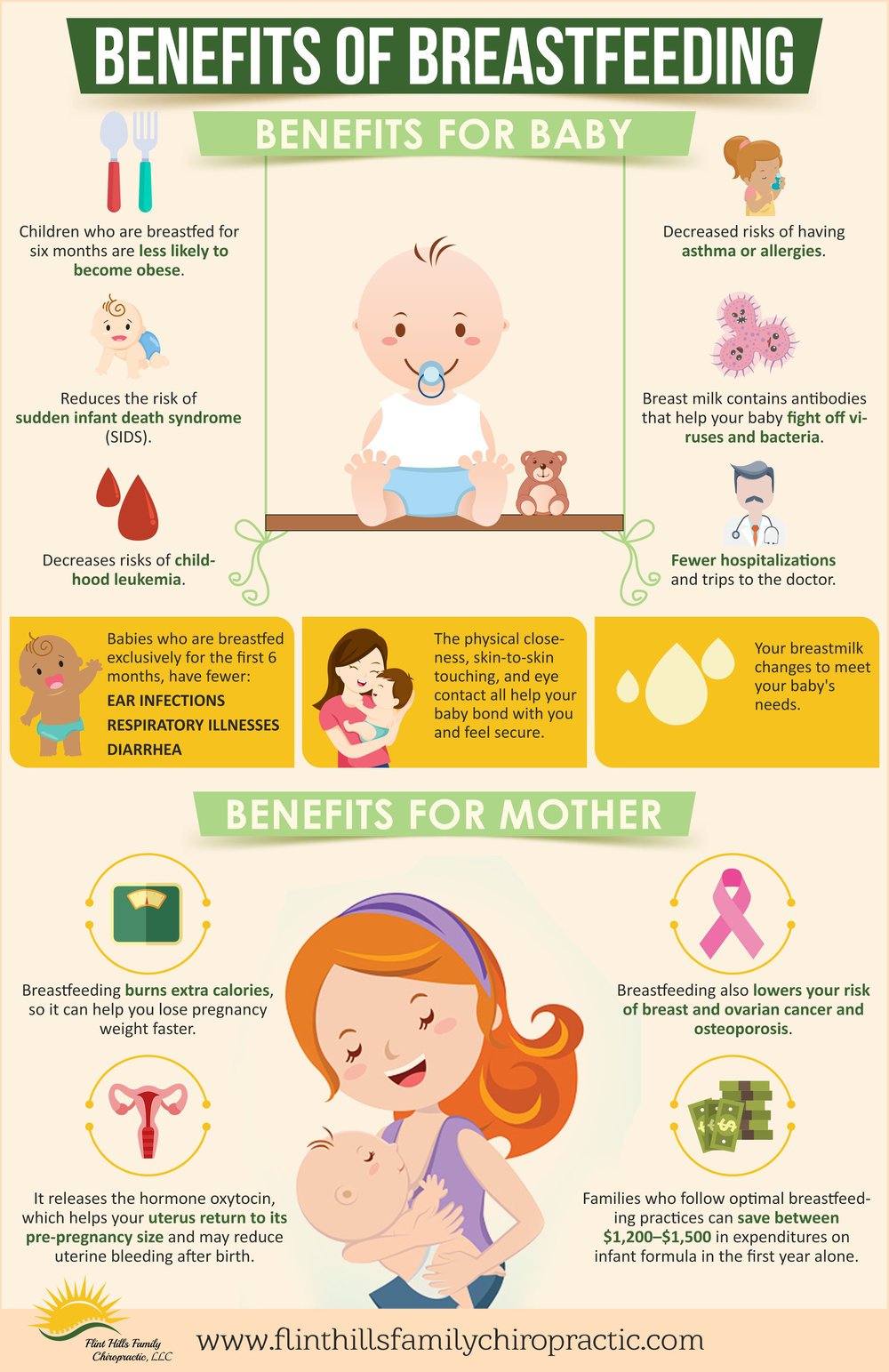
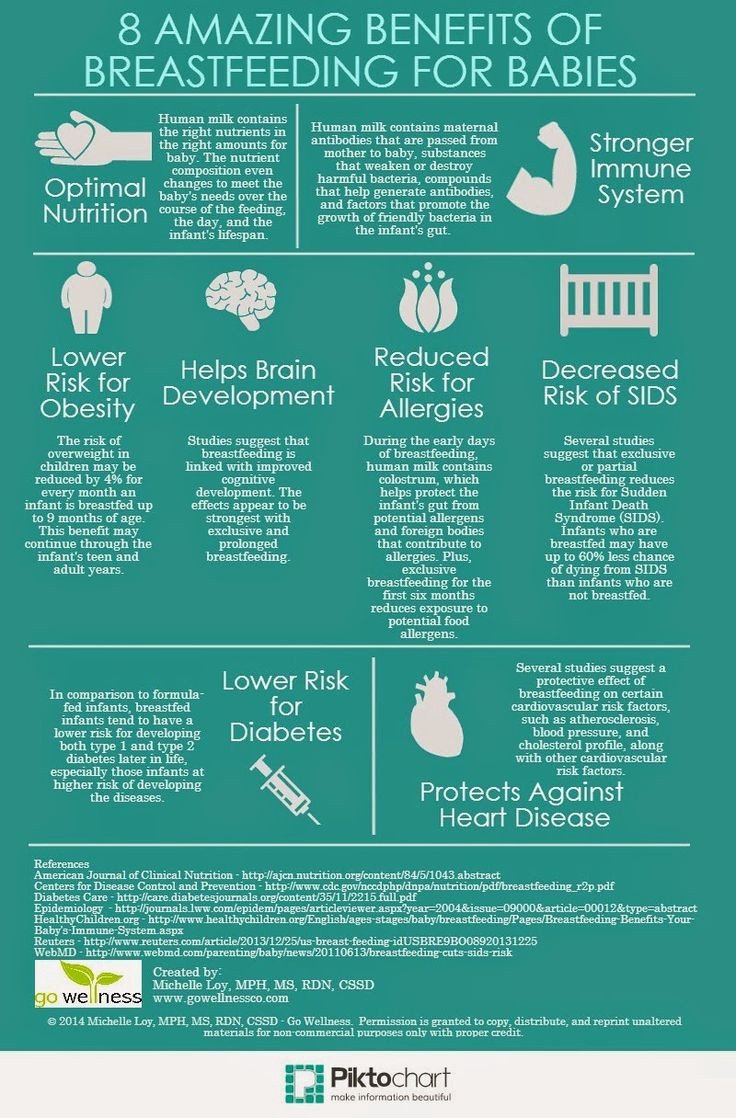
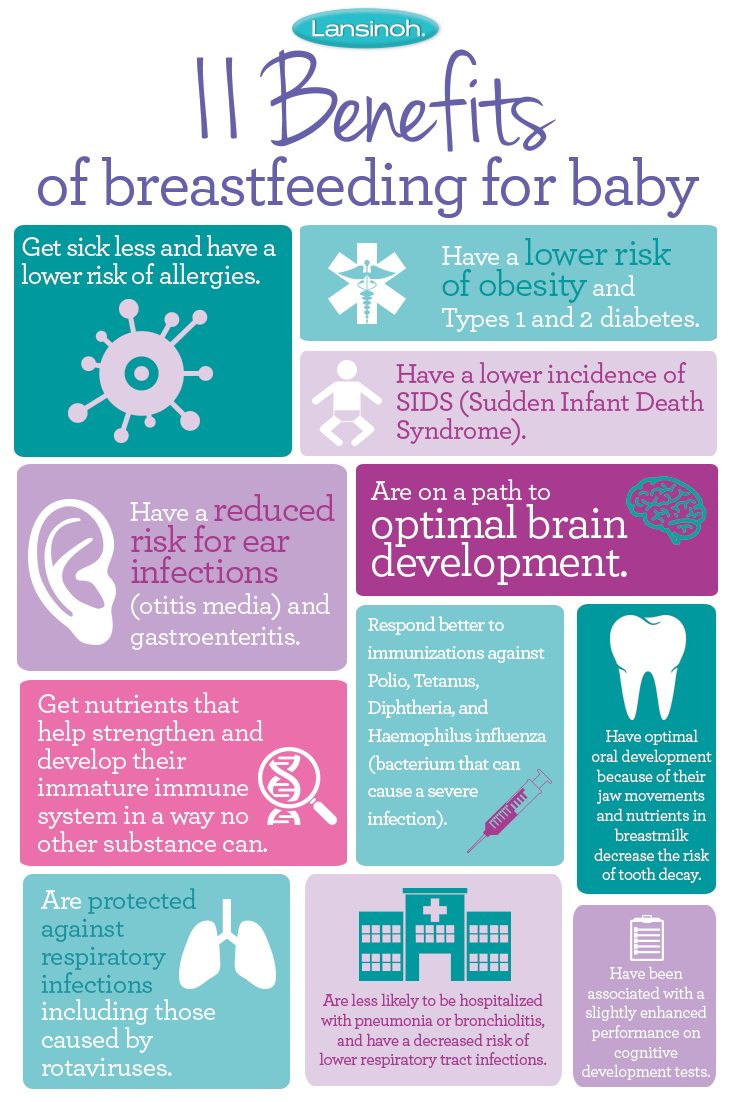
The Benefits of Breastfeeding
benefits of breastfeeding for mum, benefits of breastfeeding articles, benefits of breastfeeding for child development, benefits of breastfeeding for mother weight loss, benefits of breastfeeding by month, emotional benefits of breastfeeding for mother, proven benefits of breastfeeding, benefits of breastfeeding vs formula,




